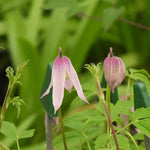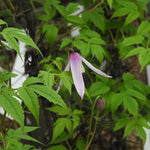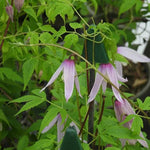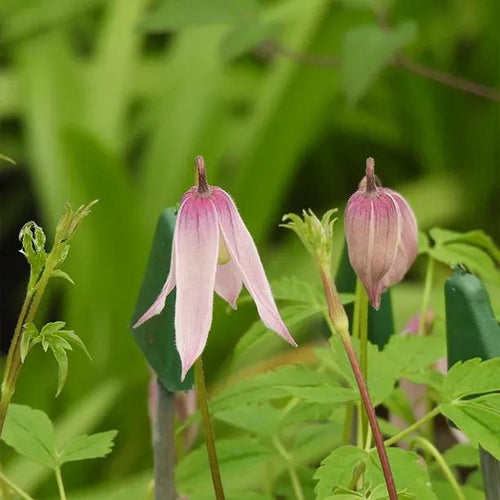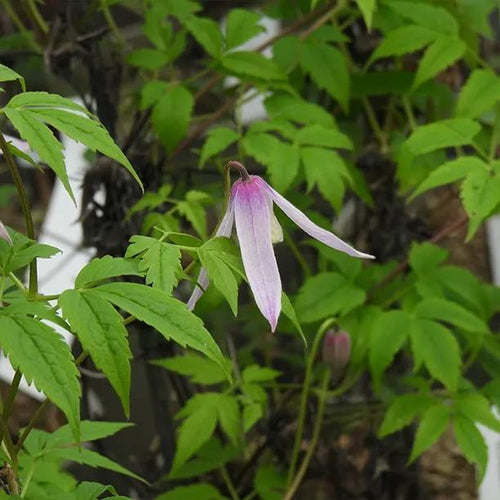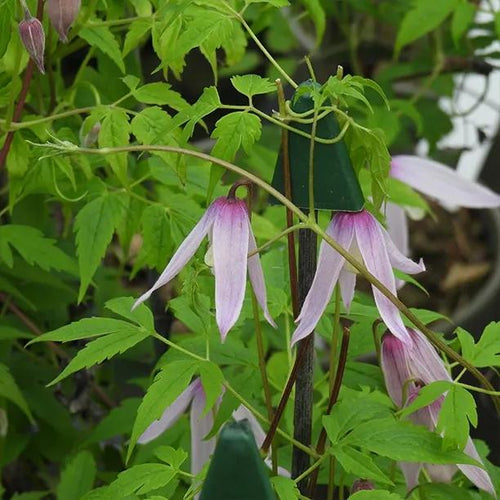Markhams Pink Clematis Plants
Clematis macropetala 'Markhams Pink' is a stunning spring flowering Clematis, producing gorgeous elegantly nodding blooms in abundance through April and May.
The beautiful double flowers are pale rosy pink with large bright golden anthers. These are followed by delicate wispy seedheads that remain on the plant for the rest of the year.
Have a look through our full range of Clematis.
Features
-
Flower colour: Pale rose pink
-
Fragrance: Mild
-
Repeating: No
-
Approximate flowering season: April to May
-
Final height and spread: 3m x 1.5m
- Type: Atragene
- Habit: Climber
- Pruning group 1
- RHS Award of Garden Merit
Garden Design Ideas
Clematis macropetala 'Markhams Pink' is a great low maintenance plant that looks wonderful trained on a trellis, pergola or wall. It looks really effective when planted with other later flowering climbers such as roses.
It's a lovely choice for growing through a host shrub or tree where the foliage can fade into the background after the flowers are over. It can be grown in containers in smaller gardens and can look stunning on a patio or balcony. It can also be trained up an obelisk in a border where it'll bring colour to the garden in spring.
It was awarded the RHS Award of Garden Merit due to its outstanding performance in the garden.
History & Trivia
'Markhams Pink' was raised by Earnest Markham in the late 1920's, who at that time was head gardener at Gravetye Manor gardens in West Sussex.
At the time the Manor was home of William Robinson who was a great plant enthusiast and horticulturist. His most famous work is The English Flower Garden, which is one of the best-selling horticultural books of all time.
Robinson was best known for his ideas on naturalised planting, which were revolutionary at the time, when the trend was very much for meticulously manicured grounds and borders.
Images supplied by Clematis on the Web.

 Secure, One-Tap Checkout
Secure, One-Tap Checkout
 Hand Picked, Delivered to Your Door!
Hand Picked, Delivered to Your Door! 1 Year Bareroot Guarantee
1 Year Bareroot Guarantee